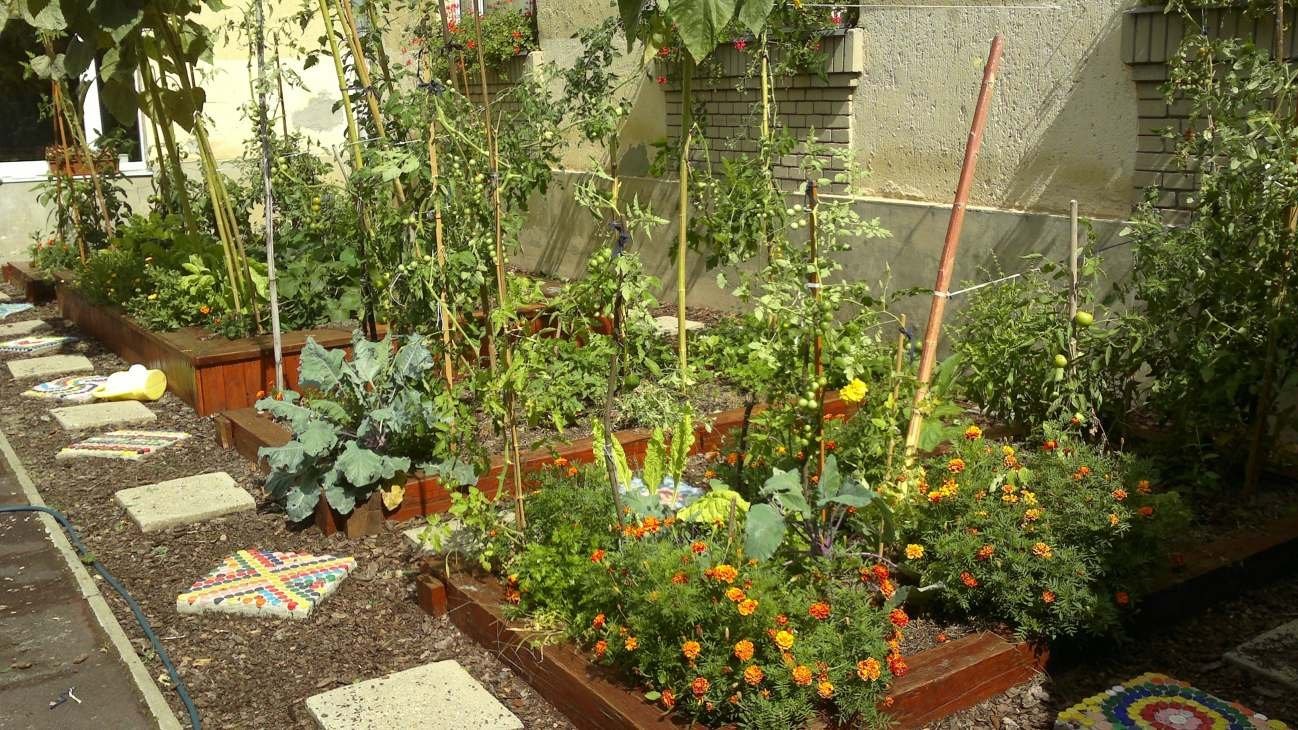The school garden network in Hungary is highly successful on a global scale, contributing to improvements in children’s mental health. This was the topic of discussion between former President János Áder and András Halbritter, one of the founders of the Iskolakertekért (For School Gardens) Foundation and an associate professor at Széchenyi István University, in the latest episode of the Blue Planet podcast, released on Monday.
As the chairman of the board of trustees of the Blue Planet Climate Protection Foundation, János Áder, referring to the upcoming start of the school year, asked the expert about the functions and history of school gardens. András Halbritter explained that school gardens—including those in kindergartens and nurseries—primarily serve educational, developmental, and recreational purposes. In response to a question from the former president about the renaissance of school garden programmes in recent decades, András Halbritter recalled that this movement began in Germany after the Chernobyl disaster and started in Hungary following the regime change, accelerating in the early 2010s. The expert listed several goals of the school garden programme, including instilling a love of the land in children, promoting a focus on sustainability, encouraging young people to consider agricultural careers, and practically imparting ecological literacy.
Mentális és egészségügyi hatással is bírnak az iskolakertek a gyerekeknek
1698-ban alakultak az első iskolakertek Európában, míg Magyarországon az első ilyen Szarvason jött létre 1780-ban. Halbritter András szerint egy csendesebb időszak után a 20. században a fenntarthatóság és a nevelés mentén újult meg a mozgalom. A 2015-ben alapított Iskolakertekért Alapítvány Magyarországon és a régióban mintegy 300 bölcsődei, óvodai és iskolai tagintézménnyel büszkélkedik, de állami támogatásban még ennél is többen részesülnek.
Halbritter noted that a school garden is perhaps the simplest way to bring nature within the confines of a school or kindergarten. Children need to be in nature, as today’s ‘pathological nature deficit’ can lead to psychological disorders. He indicated that experts have found correlations between conditions such as attention deficit disorders, autism, and other issues when children lack the opportunity to spend time in nature. The former president emphasized that it is important to instil in the next generation, from childhood, the idea that they should have a connection with the land.
When asked by János Áder how the self-organizing network of school gardens is expanding, the expert explained that in 2015, together with several school gardeners, they founded the Iskolakertekért Foundation, which has been extremely successful, now boasting 300 members—including kindergartens and nurseries—in Hungary and neighbouring countries. There are not many school garden movements in Europe; besides the American movement, the German, Slovenian, Czech, and Hungarian networks are considered successful, with Hungary’s network being unique in that it is entirely free of charge, highlighted András Halbritter. He added that a national governmental school garden development programme has also been launched, through which 337 institutions have already received support for creating or, to a lesser extent, developing school or kindergarten gardens. As part of this programme, teachers can acquire knowledge and training on garden creation. The programme’s goal is also to integrate outdoor education into as many subjects as possible.
The expert also pointed out that preschool and early elementary school children are the most receptive to school gardens. This is the age when attachment to nature can be most effectively developed, so education should start early, but it is also important to maintain interest in the topic among older children.
András Halbritter also mentioned that modern school gardens often require only a small area, as the goal is not agricultural production or the transmission of farming knowledge but education for sustainability. The most common size for these gardens is between 10 and 100 square metres, and they can often be established in urban areas.
Regarding the future goals of the Iskolakertekért Foundation, the expert stated that they consider it important to further strengthen international relations so that they can organize experts from the European Union into a network in the future.
Related articles:







